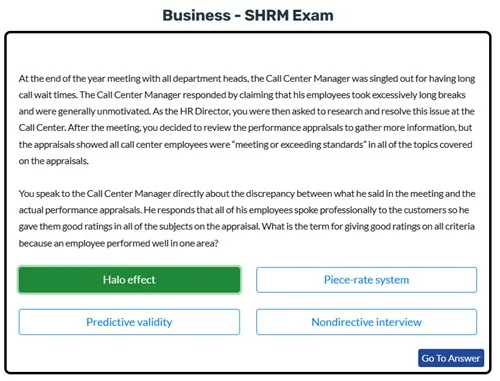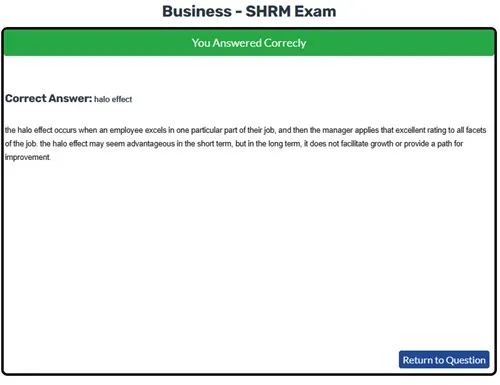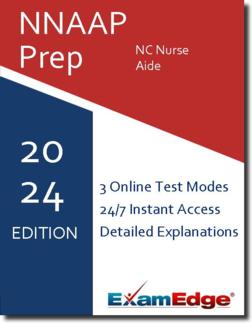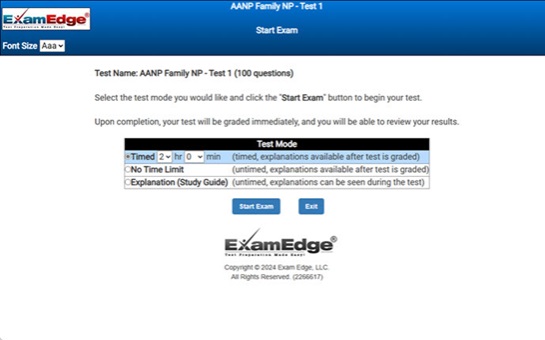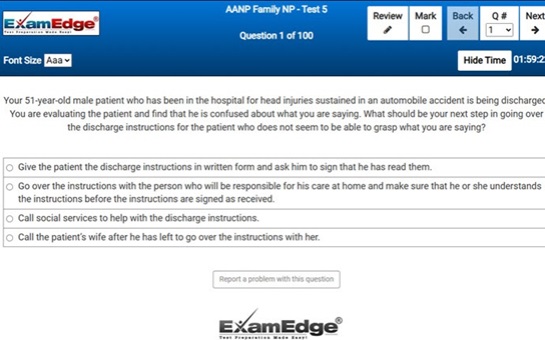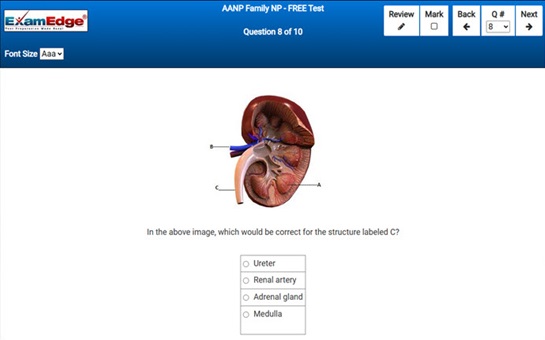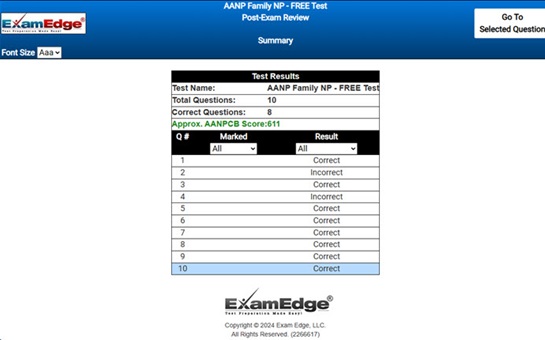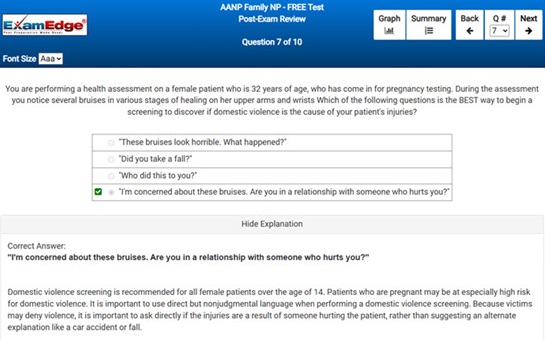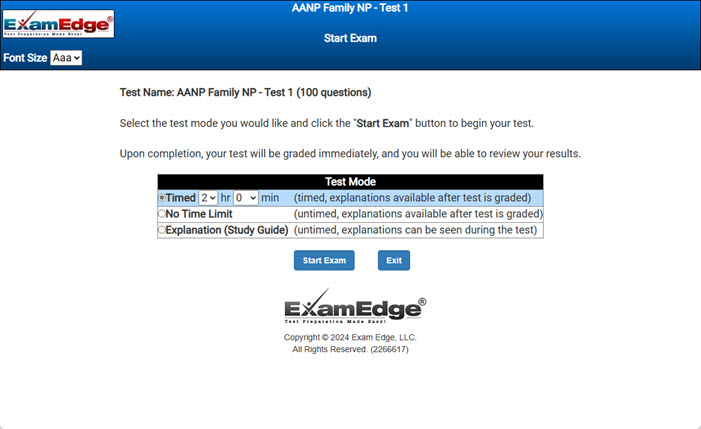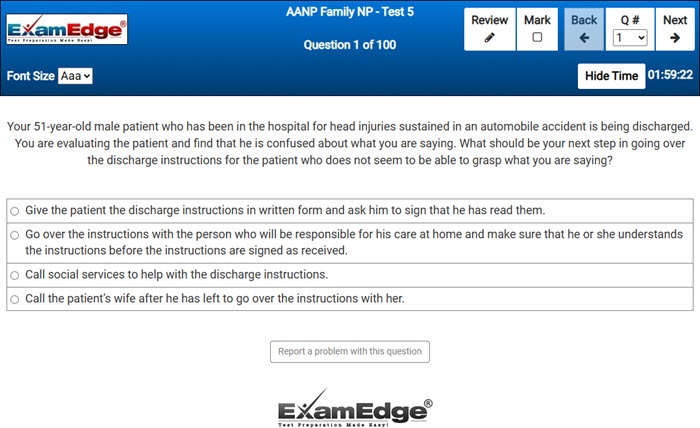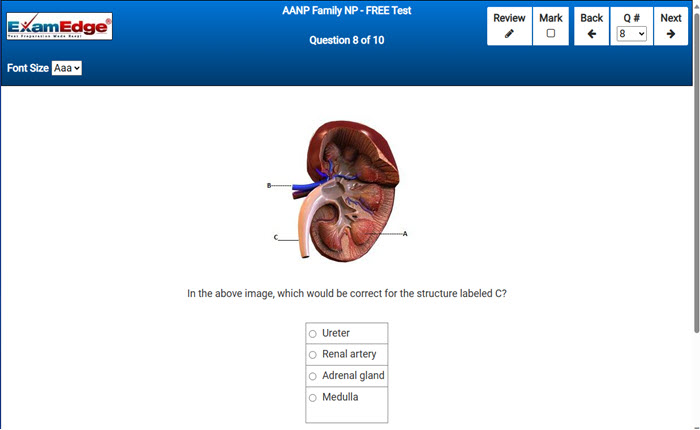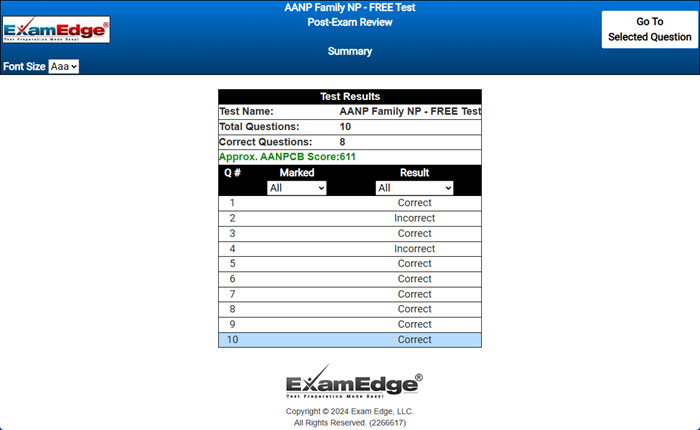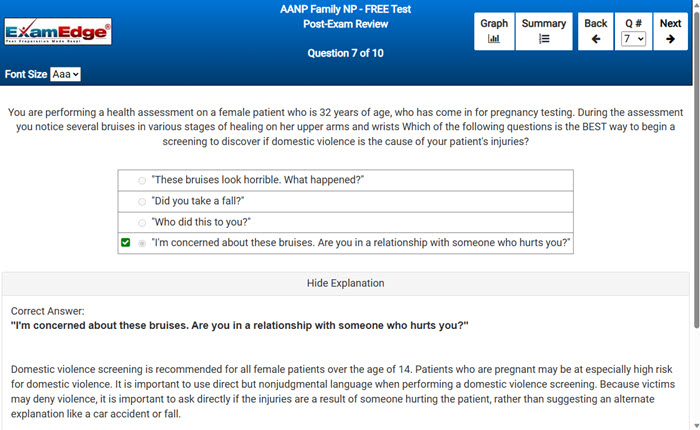NNAAP NC Nurse Aide Practice Tests & Test Prep by Exam Edge - Features
Get Instant Online Access Now!
** Sample images, content may not apply to your exam **Preparing for the NNAAP North Carolina Nurse Aide exam? Our practice tests can help you get the most out of your studying, with features like:
- Instant access to your online practice exams
- Unlimited Test Access - available 24/7
- Timed, untimed, and "study guide" modes
- Detailed explanations for each question
- 20 online practice exams
- 1,400 unique questions, if you purchase all 20 exams
Select Your Test Bundle
Excellent
NNAAP NC Nurse Aide () Shortcuts
General Exam Info
Exam Topics
Features
Study Plan Tips
Test Reviews
Why Exam Edge?
FAQ
Related Blogs
Take a FREE Test
Features of Exam Edge NNAAP North Carolina Nurse Aide Practice Tests
Accessible NNAAP NC Nurse Aide Practice Tests
- Instant online practice tests: Because our practice exams are web-based, there is no need to wait for software to download or physical supplies to arrive in the mail. Once you purchase a bundle of practice tests, you can start using them immediately!
- Unlimited test access: Our practice tests never expire. You can revisit each test as much as you would like in order to review the questions and answers.
- Available 24/7: You can pause and resume our practice tests to suit your schedule, at any time of day. Start a practice test in the morning, pause it at noon, and pick it back up at midnight!
- Access your test from any device: Our practice tests are available across multiple devices. As long as you have an internet connection, you can start a practice test on your desktop computer and continue it on your laptop, tablet, or smartphone for on-the-go flexibility.
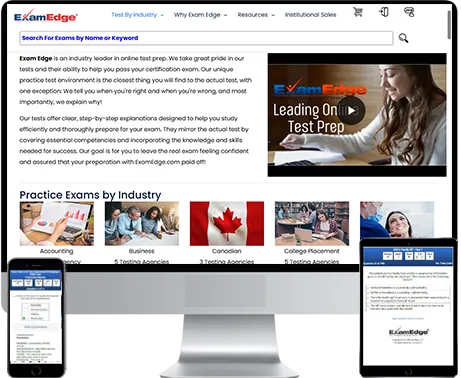
Access your test from any device
Realistic NNAAP North Carolina Nurse Aide Practice Exam Questions
- 70 multiple choice unique questions per exam: Each practice test is unique and matches the length of the real NNAAP NC Nurse Aide exam so you can practice time management and learn how to maintain focus for the duration of the test.
- 20 online practice exams: Select our largest test bundle for the ultimate NNAAP North Carolina Nurse Aide test prep package - 20 practice tests each test contains 70 unique questions that's 1,400 unique questions to make you incredibly ready for test day.
Helpful NNAAP North Carolina Nurse Aide Study Guides
- Detailed explanations for each question: Each NNAAP NC Nurse Aide practice test question comes with explanations for both correct and incorrect answers to help you understand and learn from your mistakes.
- Repeated attempts on each practice test: You can take each unique practice test up to 4 times to strengthen your recall, hone your pacing, and build your test-taking stamina.
How NNAAP North Carolina Nurse Aide Practice Tests Work
Our unique NNAAP NC Nurse Aide practice test environment is the closest thing you will find to the actual test, with one exception: we tell you which questions you answered correctly and which you answered incorrectly. And most importantly, we explain why! Our practice test questions give you step-by-step explanations in an easy-to-understand format. This opportunity to understand the practice exam questions and review your answers in depth will bolster your test prep and get you ready for success on test day.
** Sample images, content may not apply to your exam **
We also know that everyone likes to study differently, so we offer three different ways to use your NNAAP North Carolina Nurse Aide practice exams:
-
Timed NNAAP NC Nurse Aide Practice Test Mode: Timed tests are just like the NNAAP NC Nurse Aide exam. Our system sets the test time to the same time limit, or time limit per question, that you will experience with the actual exam on test day. This is a great method of practicing your pacing, especially if you're concerned about completing your exam within the time limit.
-
Untimed NNAAP North Carolina Nurse Aide Practice Test Mode: With this option, you can take your time and thoroughly consider each question before answering. This rush-free mode is recommended for those dipping their toes into exam prep or just starting on their journey to take the NNAAP NC Nurse Aide. It is a great way to test your knowledge with no time limit and highlight blind spots you will need to come back to in your studies - one of the many advantages of taking NNAAP NC Nurse Aide practice exams with Exam Edge!
- NNAAP North Carolina Nurse Aide Study Guide Mode: Not sure where to even begin with your studying? Try a practice test in explanation mode. The questions act as a study guide, giving you the option to see the answers as you take the test. Study guide mode is an effective way to review the NNAAP NC Nurse Aide exam subject matter before you take the exam in a timed format. We recommend taking a practice test in explanation mode and taking thorough notes as the best method for beginning your test prep.
Test Prep Beyond NNAAP North Carolina Nurse Aide Practice Exam Questions
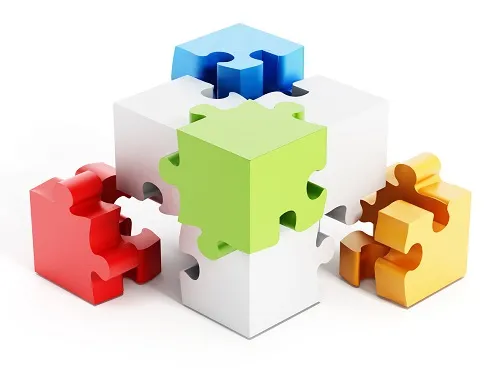
Learn how to solve the entire test-taking puzzle with Exam Edge's NNAAP North Carolina Nurse Aide practice tests! Such exams don't just measure what you know -- they are also a test of how well you perform under pressure. The right type of test preparation helps you familiarize yourself not only with the material you are being tested on but also the format of the test, to help you beat test-taking anxiety. That is the kind of valuable experience you will get with our practice tests and exam prep so you can walk into your exam as prepared as possible and feel ready to pass your NNAAP NC Nurse Aide exam.
NNAAP North Carolina Nurse Aide - Features Sample Questions
|
|
|
|
Digital Flashcards
Are you looking to boost your NNAAP North Carolina Nurse Aide exam preparation? Add a pack of digital flashcards to your study routine. Flashcards offer a unique way to enhance your understanding of the material in several ways:
- Enhanced Retention: Flashcards reinforce learning from practice tests through active recall and spaced repetition, which improves memory retention.
- Flexibility: You can use them anytime, anywhere, when you have limited time, and when you cannot complete a practice test.
- Immediate Feedback: Instant feedback on flashcards helps quickly identify and focus on improvement areas.
Using digital flashcards with practice tests offers you the best chance at passing your NNAAP NC Nurse Aide exam by improving your understanding and retention.
